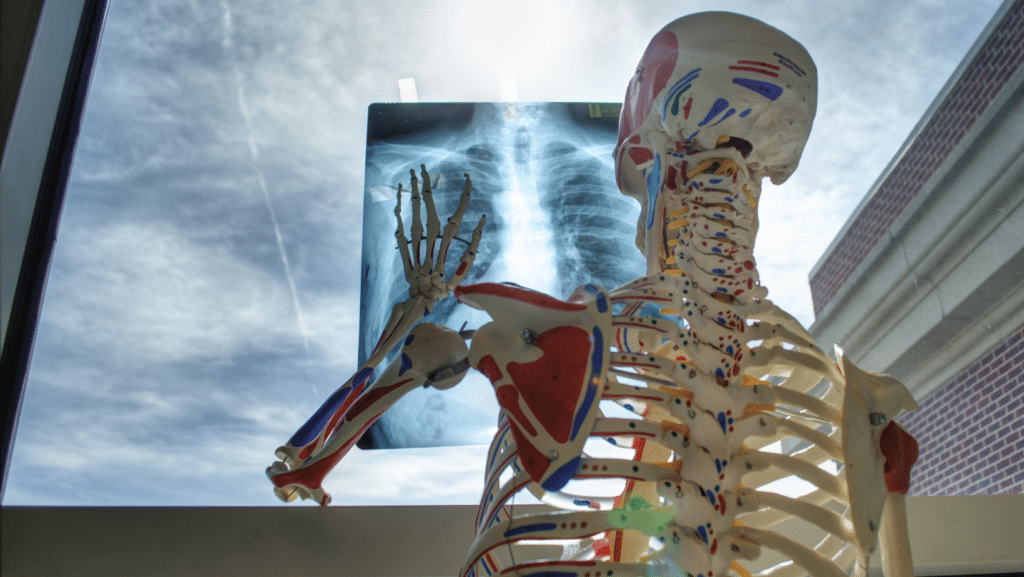When it comes to taking care of your health, knowledge is power. Whether you’re trying to prevent issues before they arise or manage a condition more effectively, having the right tools at your disposal can make all the difference. That’s why we’re excited to introduce a new service at Bunkie General Hospital: Quantitative Computed Tomography (QCT) scans. This cutting-edge technology is designed to give you a more accurate picture of your bone health, and in this post, we’ll break down everything you need to know about it.
Why Bone Health?
Osteoporosis is characterized by low bone mass and deterioration of bone tissue, leading to increased bone fragiliity and an increase in fracture risk. Osteoporosis, spinal degeneration, and AAC are most commonly seen in the elderly, and the consequences of these conditions are more serious with increased age. The National Osteoporosis Foundation estimates 55% of people age 50 and older in the U.S. have low bone mass. The condition is more common among women, but men are also affected.
What Exactly Is a QCT Scan?
Quantitative Computed Tomography (QCT) is a clinically proven method of measuring bone mineral density in the spine and femur. QCT is primarily used in the diagnosis and management of osteoporosis and other diseases. QCT can do this because the unique 3D volume software isolates the soft bone in the spine for analysis. Soft bone (trabecular bone) is affected by changes in density earlier than hard bone (cortical bone). It is likely to detect low bone mass earlier than other bone mineral density exams such as DXA, thus allowing patients to make lifestyle changes or begin treatments earlier.
Why Choose QCT Scans?
Despite DXA being widely recommended for bone densitometry, QCT is increasingly used due to its distinct advantages:
- High-resolution imaging
- Enhanced precision
- QCT results are not affected by conditions like degenerative disk disease and aortic calcification.
QCT Scans are safe and offer reliable bone mineral density (BMD) measurements for patients who have:
- Arthritis
- Scoliosis
- Disc space narrowing
- Spinal degenerative diseases
- Aortic calcification
- Osteophytes
- Obesity
Who Should Get a QCT Scan?
Indications for QCT include, but not limited to:
- Individuals with suspected abnormal bone or muscle mass.
- All women 65 years and older and men 70 years and older (asymptomatic screening).
- All postmenopausal women younger than 65 years and men younger than 70 who have risk factors for osteoporosis.
Contraindications for QCT Scans are, but not limited to:
- Anyone who recently had a test that involved barium, iodine, or other contrast materials.
- Women who are or may be pregnant.
The Bottom Line
Talk with your healthcare provider to see if a QCT Scan is right for you. Once an order for the scan has been obtained, contact our Radiology Department to schedule your appointment. It’s that simple.
At Bunkie General Hospital, we’re committed to offering you the best tools and resources to keep your bones strong and healthy. Whether you’re at risk for osteoporosis or just want to stay on top of your bone health, a QCT Scan can provide the insights you need. If you’re interested in learning more or scheduling a scan, don’t hesitate to reach out – we’re here to support your health journey every step of the way!
This article is for information purposes only and is not intended for medical diagnosis or treatment. Always consult your healthcare provider with any questions or concerns about your health.

